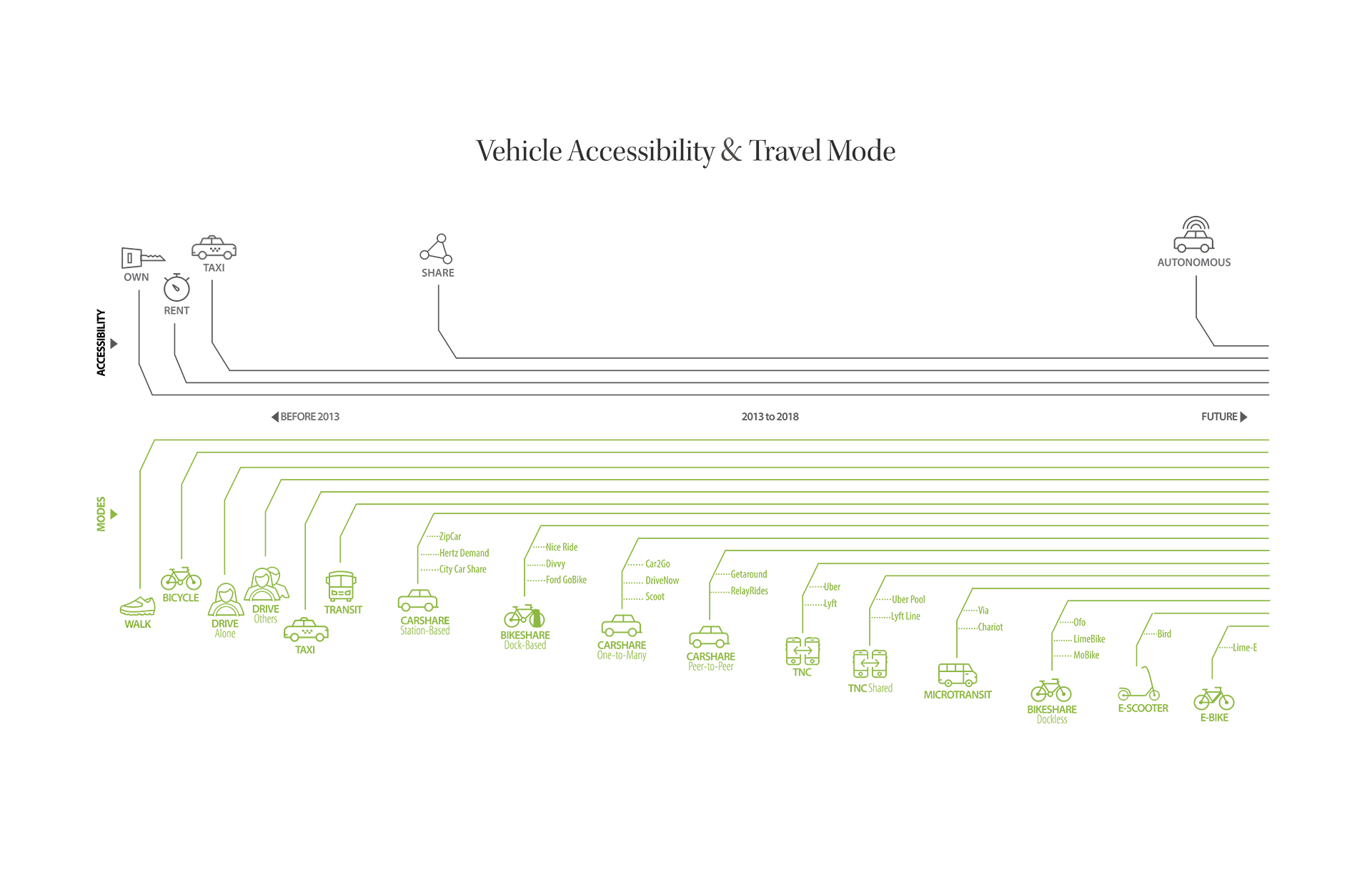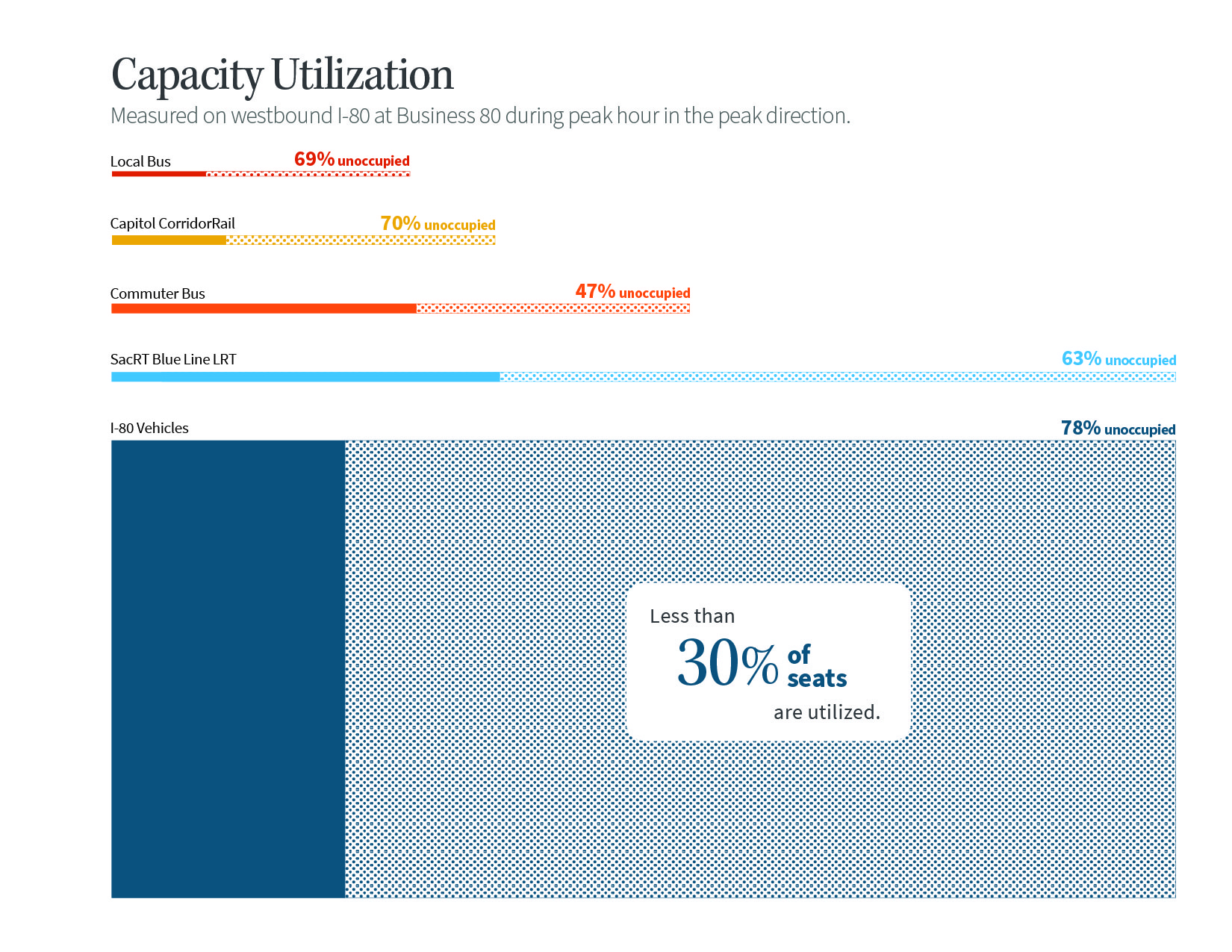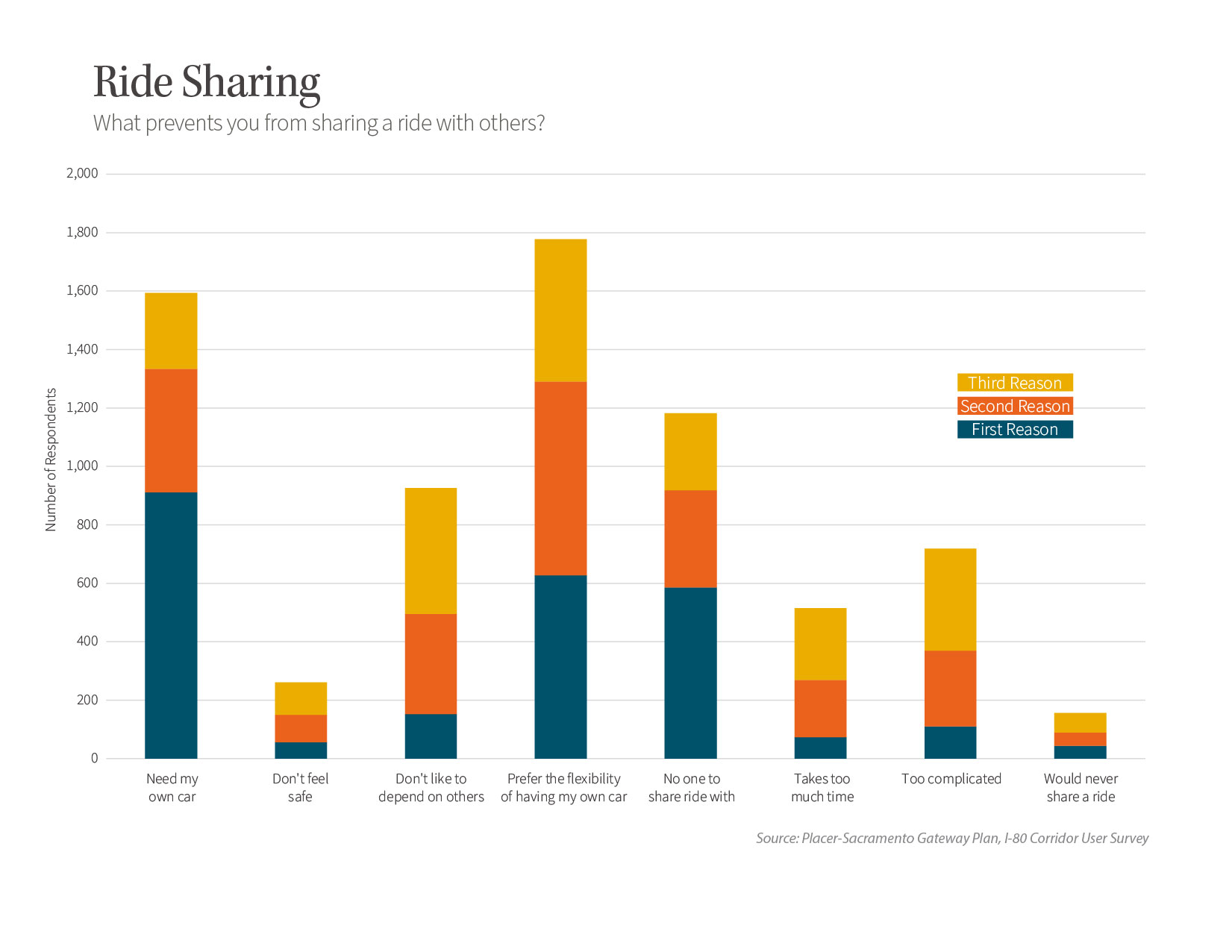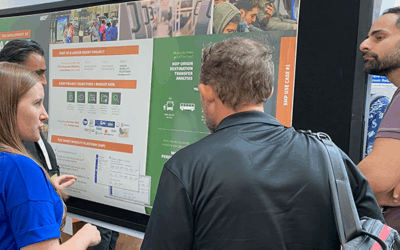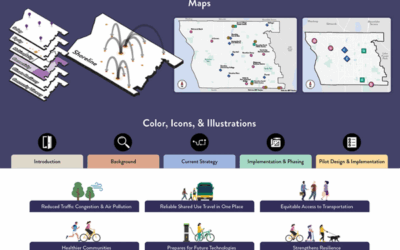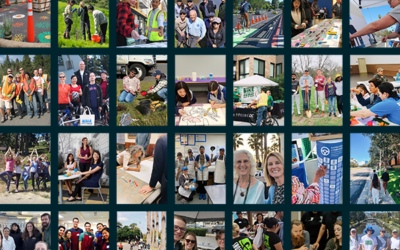A New Narrative for Decision Makers

A New Narrative for Decision Makers
Are we using the right metrics?
Putting all of this together suggests that focusing on congestion as a problem may not provide a complete picture for transportation analysis. Evolving our metrics to more accurately define transportation problems and better account for capacity, emissions, and energy efficiency will likely be necessary for the next 100 years. While we generally understand there are greater efficiency benefits in both space and emissions for shared modes, our transportation plans rarely measure relevant metrics or display efficiency results in the most meaningful way for the public and decision makers.
In a recent study in Sacramento, California, we compared capacity utilization (during the peak hour and peak direction) based on available seats across a screen line that included local bus, commuter bus, regional rail, light rail, and freeway lanes. While seat utilization is generally low across all the modes except for commuter bus, the available transit only has a few hundred empty seats.
Can we fill more seats?
Exploring this new question requires the analysts to diagnose the problem – Why are users not sharing rides? What barriers or constraints exist? Can changes be made to fill some of these seats?
Please contact us if you would like more information on evolving transportation metrics and expanding the range of solutions that can effectively reduce congestion, VMT, and emissions.
Looking for more insights? Learn more by contacting one of our industry experts.
share this article
Explore More
Join Us at ITE Western 2025 | June 29-July 2
We are looking forward to joining peers across the region at the 2025 ITE Western District Annual Meeting to share ideas, practical tools, and approaches that support safer, more inclusive transportation systems.
Mobility Hubs for Everyone
We partnered with the City of Shoreline to bring shared-use mobility hubs to life through visual storytelling—making sustainable, people-first travel easier to understand, support, and implement.
Celebrating 40 Years of Moving Communities Forward
In 1985, Juergen Fehr and Jack Peers set out to build a different kind of transportation consulting firm—one that empowered its people and focused on improving communities through innovation and creativity.

